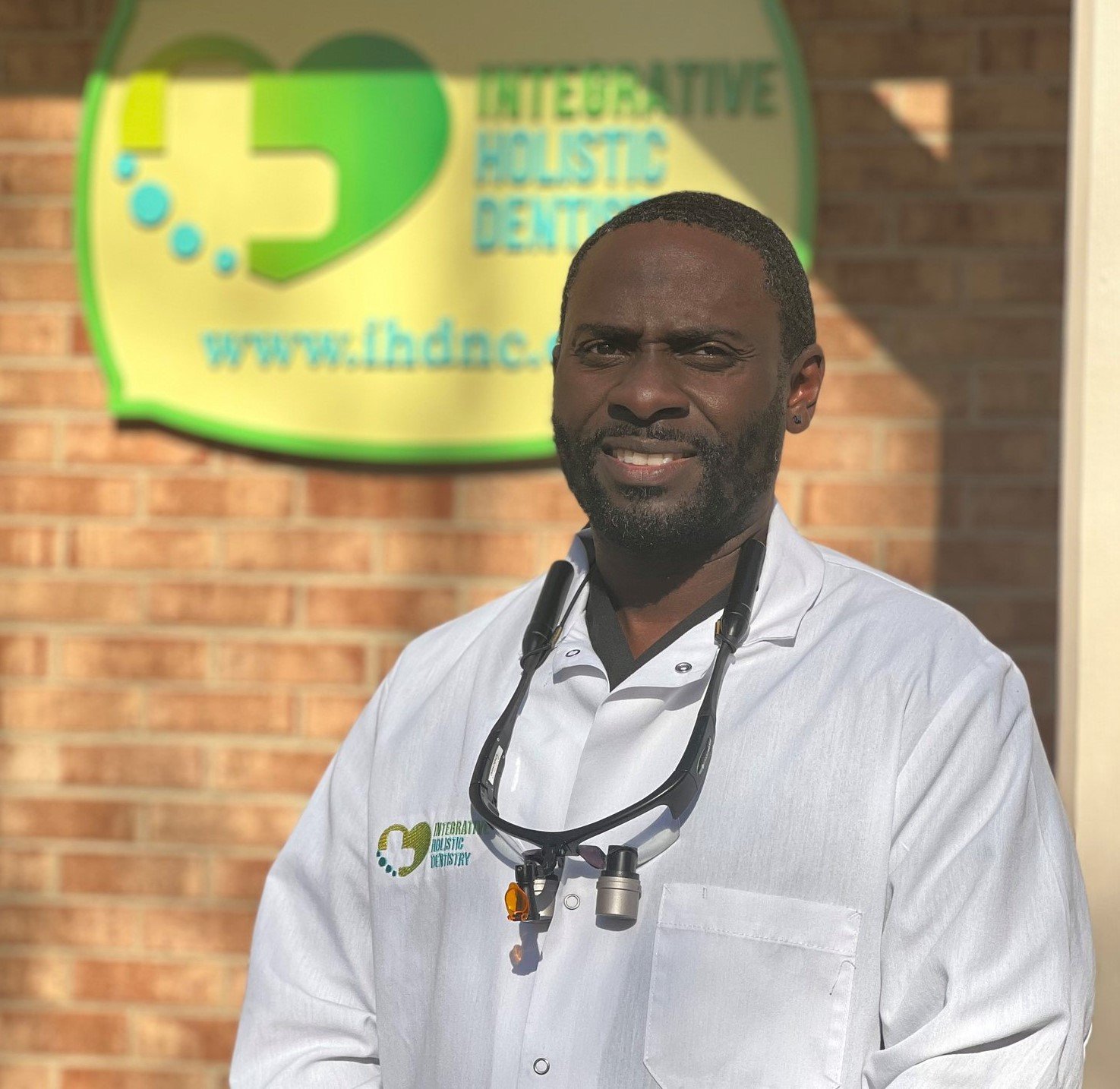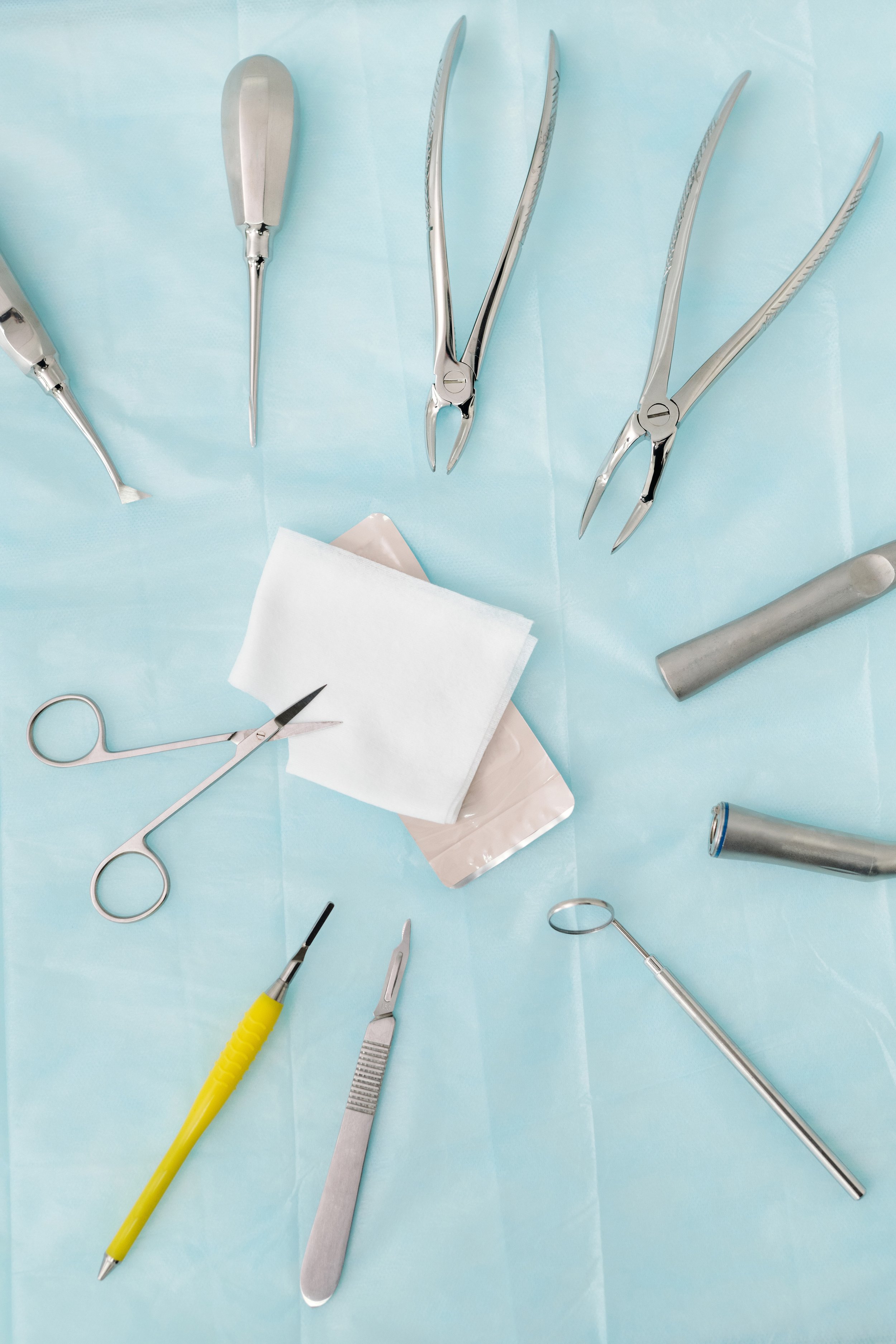The approach to dental health has moved from simply treating the symptoms or affected areas to caring for the whole body. Holistic dentists attempt to use natural remedies as treatment options. This approach to dental treatments is regarded as holistic dentistry.
If you are curious about holistic dentistry in Chapel Hill near Raleigh, NC, and how it works, our holistic dentists, Dr. Mensah and Dr. Thomas, have outlined everything you need to know in this guide. After reading this, you will fully understand our approach to dentistry and why we provide excellent oral care when you visit our dental office in Chapel Hill.
Holistic Dentistry Explained
Holistic dentistry, also referred to as biological dentistry, natural dentistry, or biocompatible dentistry is an approach to dentistry that focuses on promoting health and wellness instead of solely treating the disease.
It concentrates on how the whole body affects your oral health and how your oral health affects your overall health. Holistic dentistry combines modern science and initiatives drawn from deep-rooted traditions of natural healing and concentrates on the physical, emotional, and spiritual health of an individual, not just the teeth.
Holistic Dentist
Holistic dentists are dental professionals who opt for alternative approaches to dental treatments. They believe in the healing properties of holistic medicine and, therefore, use natural remedies for treating dental conditions. Holistic dentists believe that an individual's dental health is linked to their overall health.
Our holistic dental team in Chapel Hill near Raleigh, NC, comprises general dentists with degrees in dentistry. They primarily specialize in preventing dental issues, such as cavities and gum diseases, and also alternatives to various dental treatments. This means that at Integrative Holistic Dentistry, we offer natural treatments and care for your specific dental conditions and combine alternative methods with traditional procedures when the need arises.
Holistic Alternatives
Holistic or biological dentists offer various alternatives to certain dental conditions. They oppose the use of metal or mercury amalgam fillings and focus on using durable, safe, non-toxic, and biocompatible materials for treating dental conditions.
At our dental office in Chapel Hill, near Raleigh, NC, we provide a holistic approach to dental treatments, including root canals, metal-free dental implants, safe amalgam removal, ozone therapy, and many more. Our treatments not only improve your oral health but also help you live in good overall health.
Holistic Alternatives to Root Canal
Root canal treatment is not the only procedure for treating infections in the inner part of the tooth. There are holistic alternatives to root canal conditions that can help preserve your oral health and overall well-being. If you are struggling with a root canal, our holistic dentists in Chapel Hill, Dr. Mensah and Dr. Thomas, will provide any of the following holistic procedures to treat your condition:
Tooth Extraction
Ozone Therapy
PRF Grafting
Metal-free Dental Implants
Holistic Alternatives to Dental Implants
Dental implants are traditionally made from titanium and other metals. They function effectively for restoring missing teeth and improving the appearance of your face. However, these implants tend to be visible as time progresses, especially for patients with gum recession or thin gums. This affects the appearance of your teeth and can affect the confidence in your smile.
Dr. Mensah and his team of dental experts offer metal-free dental implants in Chapel Hill as a holistic alternative to metal implants. Our metal-free implants are made from ceramic and still have the appearance of your natural tooth.
If you have one or more missing teeth and thin or receding gums, our ceramic dental implants can restore your smile while also appearing as your natural teeth. Visit our dental office to schedule a consultation with our biological dentists. Let’s give you the care you deserve.
Ozone Therapy
Our ozone therapy in Chapel Hill works to help your body function at its peak performance, especially after an invasive dental procedure. It helps minimize the effects of concerns that slow down the healing process after procedures that involve stitches or incisions. Ozone therapy helps:
Eliminate pathogens
Increase circulation in the bloodstream
Restore proper oxygen metabolism after dental surgery, and
Stimulate the humoral anti-oxidant system.
Our holistic dentists use ozone therapy for treating gingivitis, dental decay, tooth sensitivity, periodontal disease, and temporomandibular joint dysfunction (TMJD) inflammation.
Common Questions
Below, we have provided answers to some of the prevailing questions patients have about holistic dentistry:
Is Holistic Dentistry Safe?
Holistic dentistry applies similar procedures as traditional dentistry but mostly focuses on how natural remedies and activities can help enhance a patient’s dental health. In holistic dentistry, emphasis is placed on using durable, non-toxic, and biocompatible materials to ensure you have healthy oral and overall health.
Is Holistic Dentistry Effective?
Holistic dentistry focuses on how your entire body affects your dental health. It eliminates the use of mercury fillings and other traditional dental procedures. Our patients at Integrative Holistic Dentistry can testify to the effectiveness of our holistic approach to dentistry.
What Do Holistic Dentists Use for Fillings?
Traditional dentists sometimes use amalgam material to fill holes in teeth. However, a holistic dentist opts for alternative approaches, such as using a more biocompatible filling material, composite resins. Ozone therapy can be utilized to disinfect prior to the placement of these more natural fillings.
Holistic Dentistry in Chapel Hill near Raleigh
Our approach to holistic dentistry in Chapel Hill near Raleigh, NC, is designed to provide biocompatible and durable alternatives to traditional procedures. We offer holistic treatments such as ozone therapy. Metal-free dental implants, PRF grafting, and other alternative treatment options.
We also consider nutrition, herbology, homeopathy, and other natural treatments that enhance bodily functions related to your dental health. Schedule an appointment with our holistic dentists in Chapel Hill to begin your biological dental treatments and improve your oral health.
















